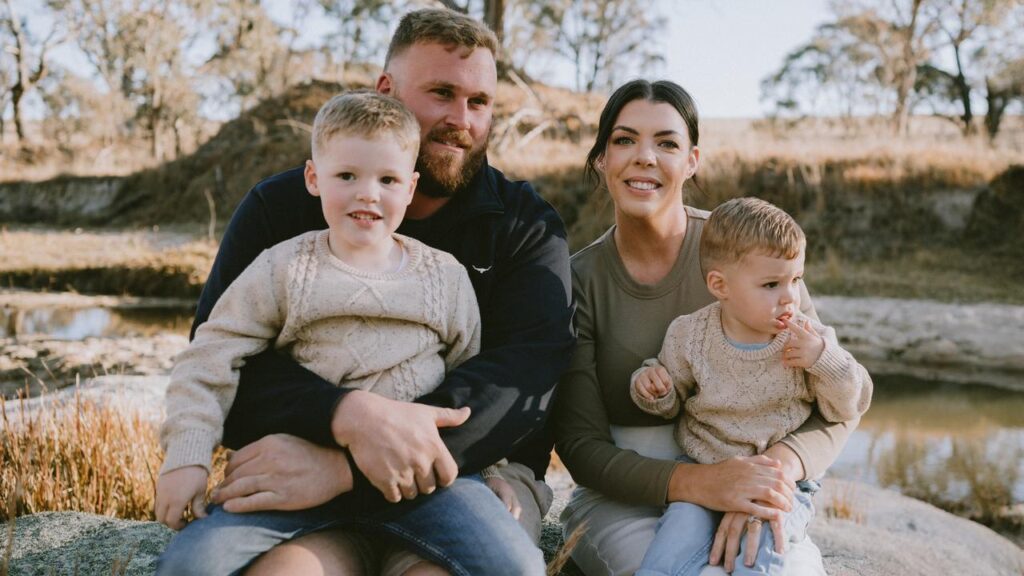Rural mums forced to travel 500km for miscarriage care
Stephanie Gardiner |

After suffering five miscarriages, Claire Brett spent every day of her next pregnancy gripped by fear and panic.
Ms Brett, who repeatedly miscarried after the birth of her first son Rosco in 2018, wondered if she would ever get to meet her second baby and steeled herself for another loss.
“Every single day, I’d wake up wondering, ‘Is today the day?’,” she told AAP.
“Many nights I’d go to bed and just cry because I had no control over my emotions.”

When she went into labour at a rural NSW hospital amid COVID-19 lockdowns in 2021, she asked a group of midwives to let her husband into the ward because she was feeling worried.
“They said, ‘Why are you anxious?’ and I just burst into tears and explained I’d had multiple miscarriages,” she recalled.
“Once they knew, the midwives were so lovely and caring.
“Obviously they’re flat out, but no one had read my report from the specialist.”
When the isolation and fear eased after the safe delivery of her son Jimmy, Ms Brett wanted to do something to help other rural mothers after miscarriage.
Her experiences have helped shape a report by pregnancy loss network Pink Elephants, which has revealed a country-city divide in miscarriage support and recommended national standards of care.
The Not Just A Loss report, released on Monday morning to coincide with Pregnancy and Infant Loss Awareness Month, said women in remote areas were 1.6 times more likely to experience perinatal death than those in the cities.
The report called for a continuity of care model that would allow women to see the same medical team for each appointment throughout losses and future pregnancies.
Continuity of care is considered key to the wellbeing of mothers and babies and was a focus of the landmark NSW parliamentary inquiry into birth trauma.
The Pink Elephants report found rural families often had to leave town to manage miscarriage, with women in WA forced to travel 500km for dilation and curettage surgery.
Megan Belot, a rural generalist working in Charleville, outback Queensland, said the situation was the result of continued maternity unit closures in rural areas.
“It’s important to acknowledge the tyranny of distance,” Dr Belot told AAP.
“(Women) have to leave their farm, their home, their community, potentially leaving other children behind, their partners. That is the unspoken impact.”
She supported a push to review the state’s patient travel scheme, which provides only $70 for accommodation per night per person over 18.
The Pink Elephants research also showed that an absence of national data on pregnancy loss risks making miscarriage an invisible issue, particularly for First Nations women.
Katrina Ward, who runs the Brewarrina and Walgett Aboriginal Medical Services in northern NSW, said data was key to securing health funding.
Targeted funds could help train more Aboriginal people in healthcare to provide miscarriage, pregnancy and post-natal support on country.
“For years we’ve been saying Aboriginal people know what we’re doing, know what needs to be done, but we just can’t get the back-up to do it,” Ms Ward said.
“People deserve more.”
Lifeline 13 11 14
beyondblue 1300 22 4636
AAP